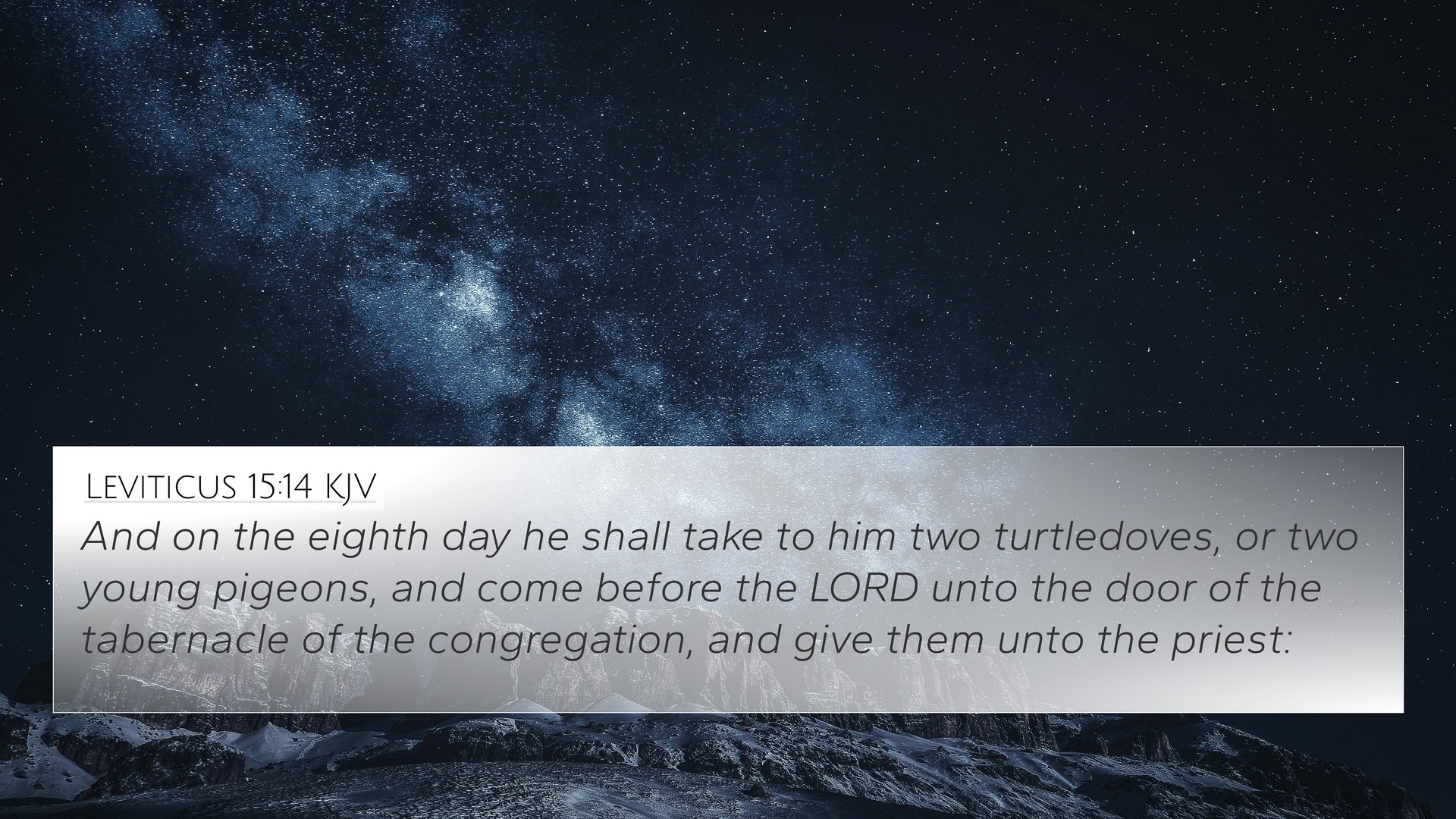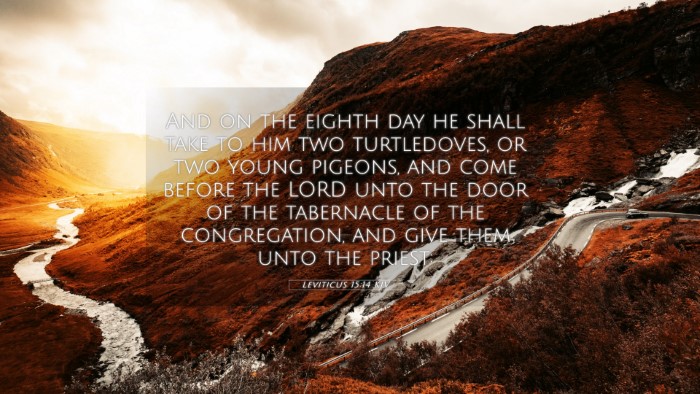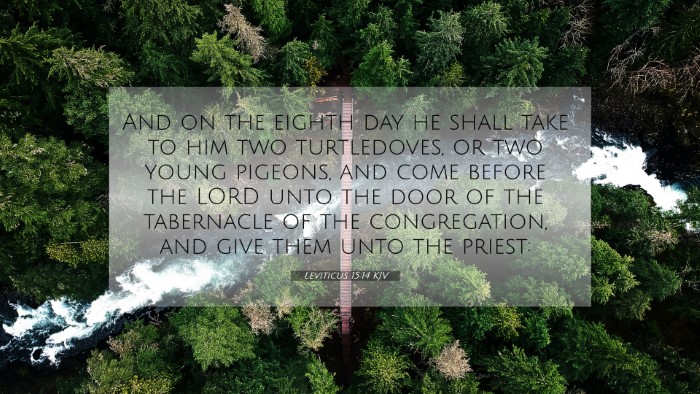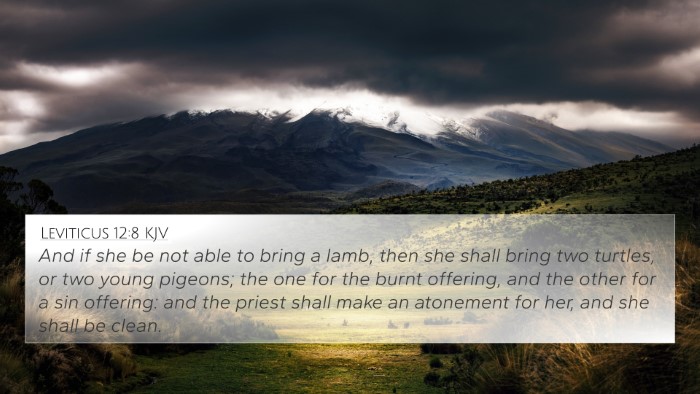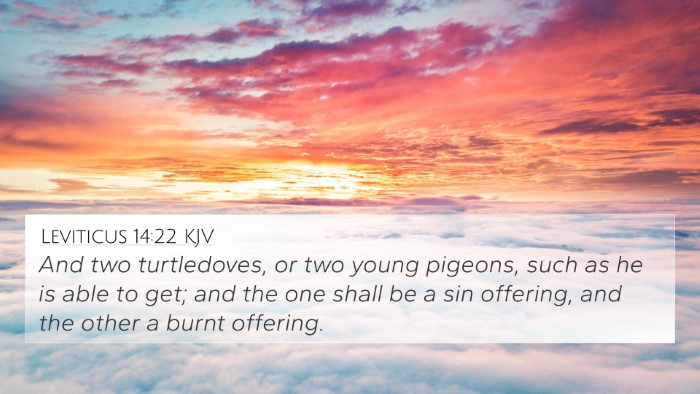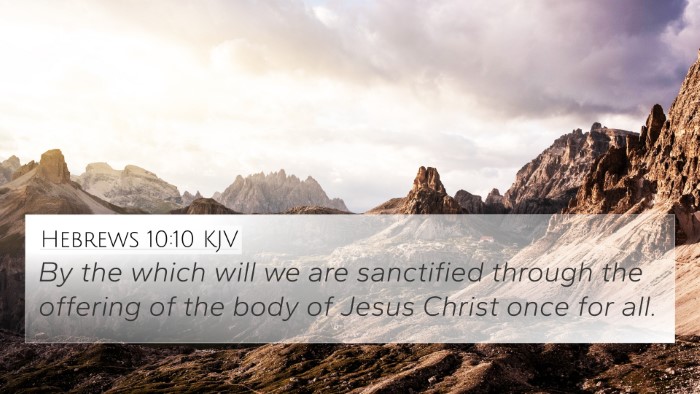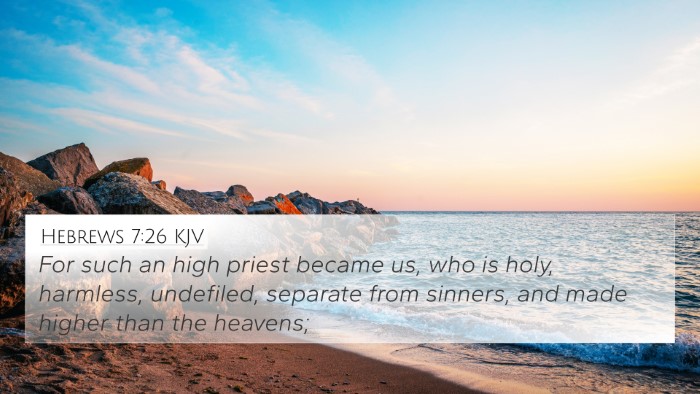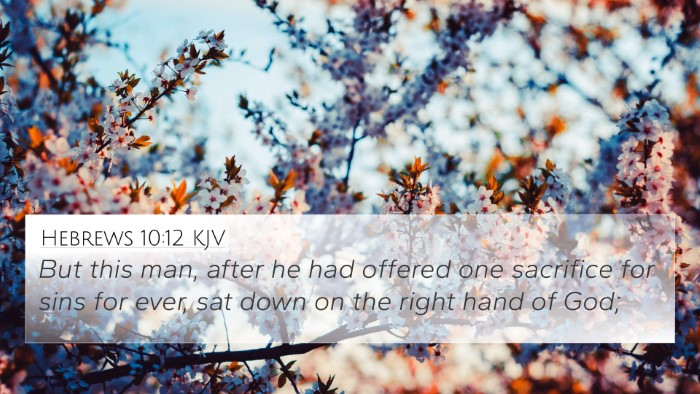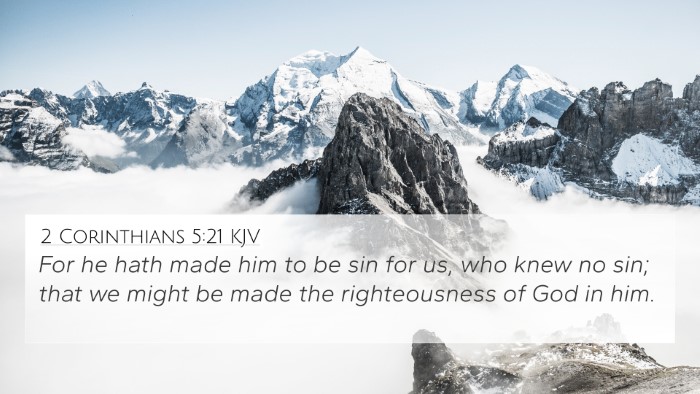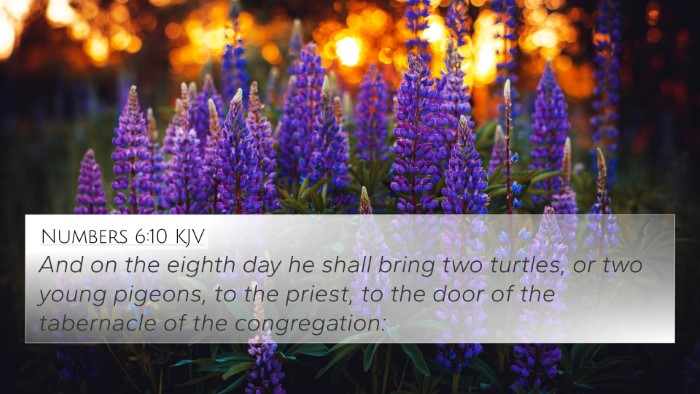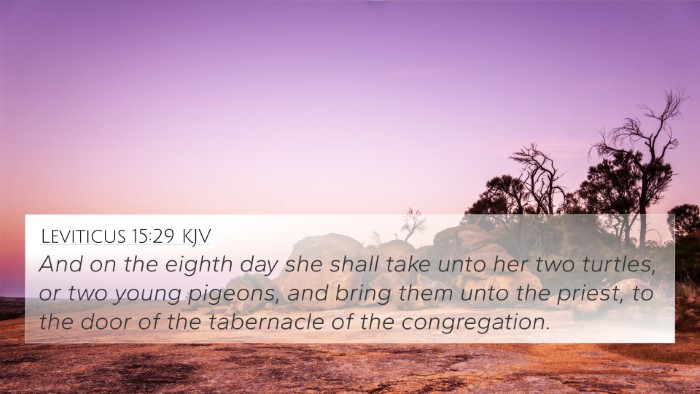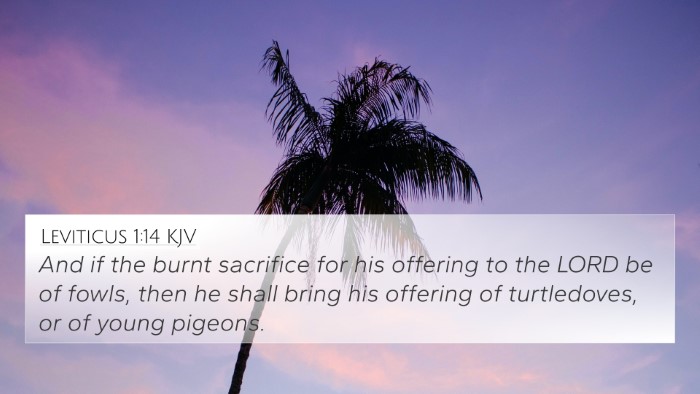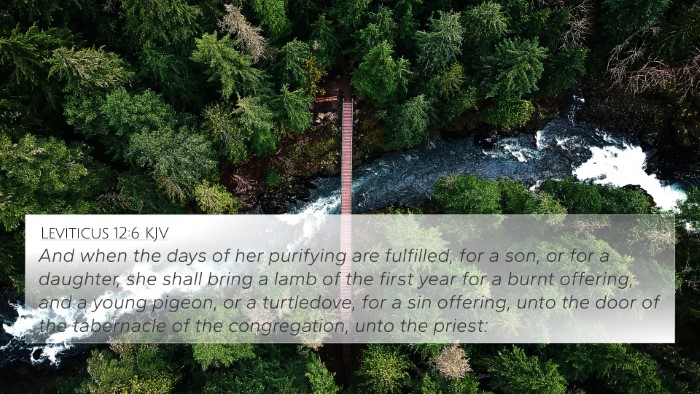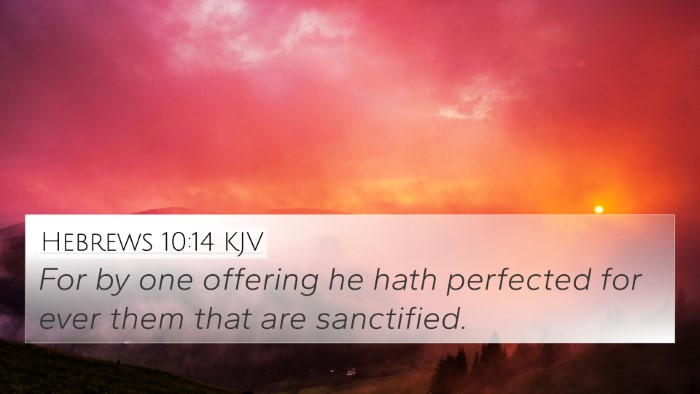Understanding Leviticus 15:14
Verse Context: Leviticus 15:14 discusses the ceremonial laws regarding purification after childbirth and other forms of impurity within the Mosaic law. This verse focuses particularly on the offerings that must be made on the eighth day after a person becomes purified.
Summary of Insights
In this section, we will explore the interpretations and meanings drawn from public domain commentaries such as those of Matthew Henry, Albert Barnes, and Adam Clarke.
Commentary Insights
-
Matthew Henry's Commentary:
Matthew Henry emphasizes the importance of ritual purity in the Old Testament, stating that these laws were imparted for the sanctification of Israel as a community. He highlights the connection between physical and spiritual cleanliness, signaling that God required the Israelites to approach Him in a state of holiness.
-
Albert Barnes' Notes:
Barnes explains the significance of the eighth day, which denotes completion and initiation into a new cycle of life, reflecting a broader theological theme of renewal. He remarks that the offerings made symbolize both gratitude and the acknowledgment of God's provision.
-
Adam Clarke's Commentary:
Clarke provides an understanding of the offerings mentioned in this verse, indicating their role in atonement and gratitude. He draws parallels to the early Christian practices, linking the Old Testament's sacrificial system to New Testament themes of redemption through Christ.
Key Themes and Lessons
This verse invites readers to reflect on vital themes such as holiness, sacrifice, and the human condition regarding spiritual life. It also serves as a precursor to understanding the New Covenant established through Christ, who fulfills the requirements of the law.
Bible Cross-References
Understanding Leviticus 15:14 can be enhanced by examining related verses. Below are some pertinent cross-references:
- Leviticus 12:6: Discusses the offerings required after childbirth.
- Numbers 6:10: Details about offerings made by those who have vowed a vow.
- 1 Peter 1:16: "You shall be holy, for I am holy," referring back to the call for purity.
- Hebrews 9:22: Explains that without the shedding of blood, there is no forgiveness of sins.
- Romans 12:1: Calls believers to present their bodies as a living sacrifice, reflecting spiritual worship.
- Hebrews 10:19-20: Talks about the new way to enter the holy place by the blood of Jesus.
- Ecclesiastes 3:1: To every season, which underscores the cyclical nature of life, similar to the eighth day tradition.
- Matthew 5:17: Jesus came not to abolish the law, but to fulfill it, connecting Old Testament practices with New Testament beliefs.
- Luke 2:21: The circumcision of Jesus on the eighth day, emphasizing the significance of this time period.
Connecting Biblical Texts
Through the practice of cross-referencing, we can delve deeper into the scripture and identify thematic connections. This method allows for a comparative Bible verse analysis that enriches our understanding of the text.
Tools for Bible Cross-Referencing
Utilizing various tools can be immensely helpful in studying Biblical texts:
- Bible Concordance
- Bible Cross-Reference Guide
- Cross-Reference Bible Study resources
- Bible Reference Resources
- Comprehensive Bible Cross-Reference Materials
Conclusion
In summary, Leviticus 15:14 is a profound scripture that illustrates not just the requirements under the Mosaic law but serves as a precursor to understanding New Testament teachings. Through examination of related scriptures, one can see the continuity of God's plan throughout the Bible and how it shapes our understanding of holiness, sacrifice, and redemption.
